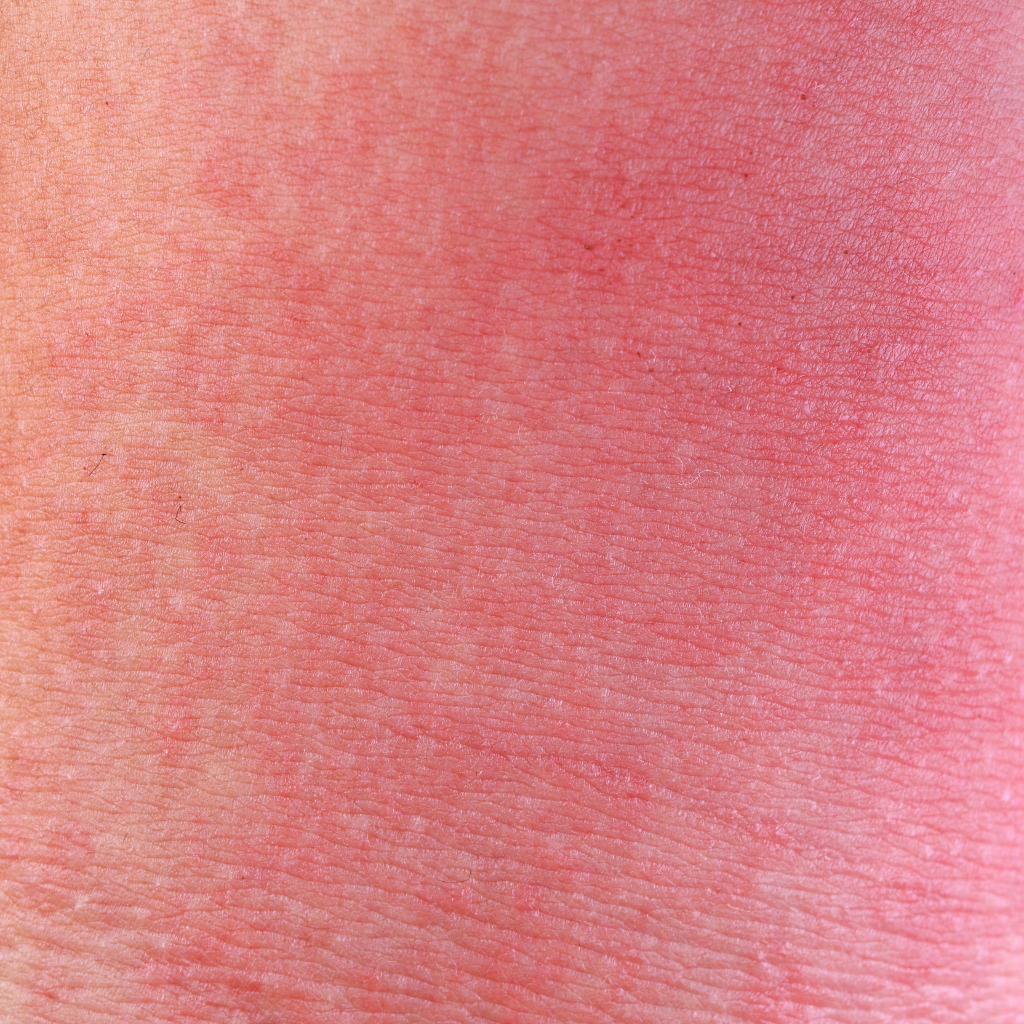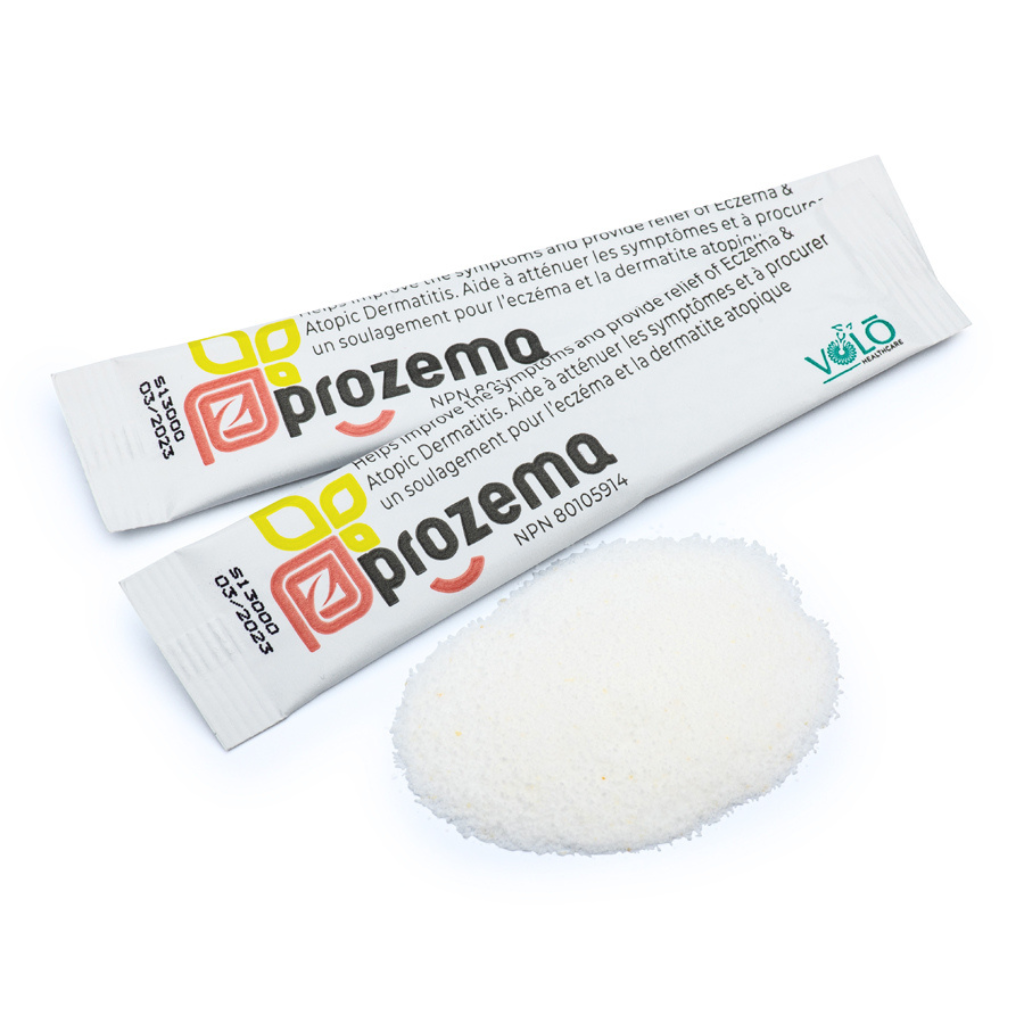
Atopic Dermatitis OTC Treatment
Atopic Dermatitis | Symptoms | Lifestyle Changes | Treatment | OTC Treatment | Best Treatment | ProZema | Conclusion
What Is Atopic Dermatitis?
Atopic dermatitis, often called eczema, is a common chronic skin disorder. Typically atopic dermatitis shows up in the first six months of a baby’s life. This condition can continue into adulthood, with flare-ups occurring at any age. Inflammation due to environmental triggers, immune system problems, and family history of the atopic triad all play a role in atopic dermatitis.

What Are The Symptoms Of Atopic Dermatitis?
The symptoms of atopic dermatitis are typically rashes, itchiness, and dry skin. These rashes can appear on many different parts of the body:
- Knees
- Elbows
- Ankles
- Skin creases
- Joints
When you have an atopic dermatitis flare-up, scratching the rash can cause skin damage, redness, soreness, swelling, bleeding, and even pain. If you scratch your skin so that it breaks, with or without a bleed, then you increase the chances of getting an infection. The itchiness that comes with atopic dermatitis can also impact your sleep and in turn your quality of life. Management of these symptoms involves lifestyle modifications and treatments.
Lifestyle Changes To Help With Atopic Dermatitis
Atopic dermatitis often flares up followed by periods of remission and calm skin. This makes it important to monitor your lifestyle and daily activities for potential triggers. Once you start monitoring your flare-ups, you can avoid things that trigger or worsen it. Common household items that are tough on your skin are detergents and some soaps. Using less harsh detergents and soaps can help prevent atopic dermatitis flare-ups.
Gloves can protect your hands from detergents when washing your dishes and from the cold, dry hair in the winter. You can also use a humidifier in your home to help your skin be less dry. Using a gentle moisturizer throughout the year can help to hydrate and protect your skin as well.
Getting enough sleep, eating healthy, and reducing stress in your life can also help to reduce your atopic dermatitis flare-ups and. If you are allergic to certain foods, or even dust and pollen, avoiding these triggers can help too. Another way to reduce the symptoms of your eczema and atopic dermatitis is to include more probiotics in your diet through foods or supplementation.
Atopic Dermatitis Treatment
In some cases lifestyle changes may not help your atopic dermatitis and you should see your family doctor. They may prescribe you one of the following treatments:
- Topical corticosteroids
- Oral corticosteroids
- Antibiotics
- Topical calcineurin inhibitors
- Injectable drugs like biologics
- Phototherapy
Topical corticosteroids are available in different strengths for use depending on how bad your condition is. To control the inflammation of your skin during a flare-up, your doctor may prescribe oral corticosteroids. You may be more prone to infection as scratching can cause breaks in your skin. So, your doctor may prescribe you antibiotics if your skin becomes infected. For severe cases, your doctor may prescribe topical calcineurin inhibitors, which are anti-inflammatory. Newer injectable drugs like biologics are also a treatment option, as is phototherapy.
Atopic Dermatitis OTC Treatment
There are also a few over-the-counter (OTC) treatments for atopic dermatitis that you can try. OTC medications are ones you can get without a prescription. It is important to be careful when you take OTC medications, as sometimes they can interact with medications you may already be taking. Speak to your healthcare practitioner before making changes to your atopic dermatitis management plan. Atopic dermatitis involves inflammation of the skin and people with this condition often have allergies. So, antihistamines can be a helpful OTC treatment for atopic dermatitis. Itchiness and redness are some of the main symptoms of atopic dermatitis which tends to flare up periodically. Topical OTC hydrocortisone, which may include a weaker steroid, can reduce itching and inflammation. But it may cause side effects like dry skin, acne, or burning so it is important to use it carefully. Check with your doctor to see which atopic dermatitis OTC treatment can help you manage your symptoms.

Best Treatment for Atopic Dermatitis
The best treatment for atopic dermatitis will be different for each person, and you can consult your doctor to see what is best for you. In addition, you might also need to change your treatments over time to see what works best. Lifestyle changes, avoiding triggers, and medications can all form a part of your treatment plan for atopic dermatitis.
Usually, the first treatment that doctors use is topical steroids. These can cause side effects, and the dosage may need to increase as time goes on. Due to these reasons, people with atopic dermatitis often look for natural ways to manage their symptoms. Recent research has brought about innovative natural therapies for atopic dermatitis through probiotics.
ProZema Probiotic
Your body has good and bad bacteria and together they exist in a microbiome. Probiotics are microorganisms that help balance your microbiome, and improve your gut and skin health. ProZema Probiotic is a blend of three probiotics:
- Bifidobacterium lactis CECT 8145,
- Bifidobacterium longum CECT 7347, and
- Lactobacillus casei CECT 9104
This blend of probiotics is clinically proven to reduce the symptoms of eczema and atopic dermatitis within 12 weeks. ProZema Probiotic is an odourless and neutral-tasting powder that mixes with room-temperature foods and liquids for easy consumption. Consult your doctor to see if ProZema Probiotic is right for you.
Conclusion
Atopic dermatitis can be a lifelong condition and there are ways you can manage your symptoms when it flares up. Avoiding triggers, reducing stress, and regular moisturization can all help as can OTC treatments. If you are concerned about the side effects of common atopic dermatitis OTC medications, there are natural therapies that you can explore. Ask your healthcare provider about probiotics for atopic dermatitis to reduce your symptoms.
References:
National Eczema Association: Atopic Dermatitis
American Academy of Dermatology Association: Eczema Types Atopic Dermatitis Overview
National Eczema Association: Top 5 Eczema Over-The-Counter Treatments
Mayo Clinic: Atopic Dermatitis (Eczema)
Healthline: Atopic Dermatitis Treatment Options
Healthline: Difference Between Eczema and Dermatitis
Family Doctor: Eczema and Atopic Dermatitis
Kapur, Sandeep et al. “Atopic dermatitis.” Allergy, asthma, and clinical immunology : official journal of the Canadian Society of Allergy and Clinical Immunology vol. 14,Suppl 2 52. 12 Sep. 2018, doi:10.1186/s13223-018-0281-6
